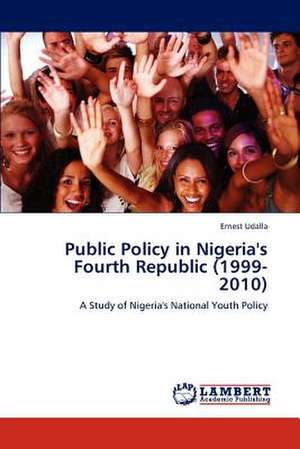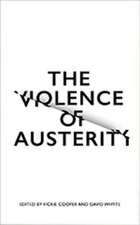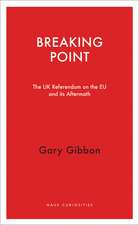Public Policy in Nigeria's Fourth Republic (1999-2010)
Autor Ernest Udallaen Limba Engleză Paperback – 3 iun 2012
Preț: 390.05 lei
Nou
Puncte Express: 585
Preț estimativ în valută:
74.63€ • 77.93$ • 61.63£
74.63€ • 77.93$ • 61.63£
Carte tipărită la comandă
Livrare economică 15-29 aprilie
Preluare comenzi: 021 569.72.76
Specificații
ISBN-13: 9783847330523
ISBN-10: 3847330527
Pagini: 132
Dimensiuni: 152 x 229 x 8 mm
Greutate: 0.2 kg
Editura: LAP LAMBERT ACADEMIC PUBLISHING AG & CO KG
Colecția LAP Lambert Academic Publishing
ISBN-10: 3847330527
Pagini: 132
Dimensiuni: 152 x 229 x 8 mm
Greutate: 0.2 kg
Editura: LAP LAMBERT ACADEMIC PUBLISHING AG & CO KG
Colecția LAP Lambert Academic Publishing
Notă biografică
Udalla A. Ernest, M.Sc: studied Political Science at University of Ibadan (M.Sc). His areas of interest include: Public Policy, Public Administration, Development Studies, and Youth. He has written several journal articles and conference papers. He is currently a Junior Research Fellow at the French Institute for Research in Africa (IFRA-Nigeria).














